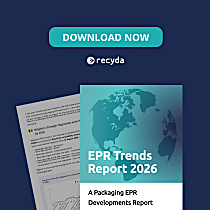INC-5: Biopharmaceutical industry stresses product and patient safety

Plastic packaging is vital to ensuring safety in healthcare throughout the pharmaceutical lifecycle. The International Federation of Pharmaceutical Manufacturers and Associations (IFPMA), IGBA (International Generic and Biosimilar Medicines Association) and GSCF (Global Self-Care Federation) call on the UN and its member states to take this into consideration in the implementation in the treaty to end plastics pollution.
“We believe it is possible to achieve an instrument that protects both the environment and human health, through harmonized, targeted extended compliance periods, in line with regulatory timelines and limited exemptions where no feasible and safe alternatives exist at sufficient quality and scale,” their statement reads.
The organizations expresses support for creating a UN instrument to end plastics pollution globally and in a way that prioritizes patient safety and safeguards access to medicinal and medical products.

“Member states must ensure close consultation and coordination between health regulators, environmental policymakers and manufacturers to avoid any conflicting requirements.”
Globally harmonized approach
It says that a “globally harmonized approach” and compliance with “stringent quality and safety standards” are needed to ensure the safe manufacture, production and distribution of healthcare products.
The organization does, however, acknowledge that plastics pollution is inherently detrimental to human health, asserting that it needs to be addressed through the reduction of unnecessary plastics use.
For this reason, IFPMA calls for the establishment of a “health protective treaty” that ensures the reduction of plastics, while ensuring society continues to benefit from the benefits of plastics in certain contexts, like healthcare.











